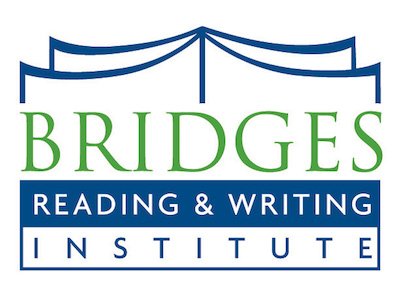Writing Summer Camp
Project Ink
At Project Ink, our writing summer camp, students will develop their love for writing. Using their imagination to create their own fictional story, students will learn practical tips and useful techniques to become better writers. We want to pique students’ imagination and show them that they can be good writers. We teach them the power and the fun of choosing words to create tone and certain moods. We teach them how to incorporate a variety of sentence structures as a way of changing the pace and feeling of the story. We teach them the power of dialogue and how it can be a great way to cut through long narratives and make writing flow more easily and dynamically. We teach them to use figurative language as a way to create mental pictures for their reader and to emphasize important parts of their stories. Furthermore, the elevated confidence that results from creative writing always translates over to the other writing types such as commentary and formal essay writing. Students realize that they have something to say and can use their writing to share their ideas with others.
Join us for Project Ink!
Project Ink is a two-week summer creative writing camp for students entering 4th to 8th grade in Fall 2025. We try our best to keep the teacher to student ratio at 1 to 8 (but may go up to 9 in some classes).
The registration fee is $975 per student (not including the Eventbrite processing fee of $67.24).
Project Ink is Monday through Thursday for two weeks.
Classes are three hours per day from 9:30 to 12:30 p.m.
How does it work?
What will they do?
STEP 1: CHOOSE A SESSION
Session One: June 16, 2025 to June 26, 2025 (Monday to Thursday)
Session Two: June 30, 2025 to July 10, 2025 (Monday to Thursday)
Session Three: July 14, 2025 to July 24, 2025 (Monday to Thursday)
Session Four: July 28, 2025 to August 7, 2025 (Monday to Thursday)
STEP 2: CHOOSE GRADE LEVEL
Upper Elementary (4th & 5th Grade): entering 4th and 5th grade in Fall 2025
Junior High (6th to 8th Grade): entering 6th and 8th grade in Fall 2025
GRADE VERIFICATION: We will verify the grade level of your child. Please do not register for a different grade class just because the class for your child's actual grade is full or unavailable. Also, please do no register your child for a class that is above their grade level despite how advanced you think they are. Only register for the correct Project Ink camp for the actual grade that your child will enter in Fall 2025. Upon request, you must provide a verifying grade report to confirm the registration. If you enroll your child for a Project Ink camp that does not match his actual grade, his registration will be cancelled.
TECH REQUIREMENT: All students must bring a laptop (not an iPad due to formatting issues) and have access to a Google account to use Google Docs. Please also make sure two-step authentication is turned off so that your child does not have a problem accessing their account. Please note that their school accounts will NOT WORK because they are generally restricted, so you will need to set up a personal Google account separate from their school accounts.
When registering, you will be required to provide your child's Gmail address (not a school account). Therefore, please have your child's Gmail account set up BEFORE you start the registration process.
During Project Ink, they will practice the five steps to the writing process: prewriting, drafting, revising, editing, and publishing a finalized story. As students work through the five steps of the writing process, they will successfully complete the following objectives:
Prewriting
Students will learn to make their own choices. During our pre-writing sessions, we will provide the time and teacher-supported prompting to help students thoughtfully bring to life each element of their story. Students will practice asking questions and making the logical connections needed to successfully brainstorm the following:
The Setting
Use the setting as an influencing factor on the characters and make choices on which landscape, architecture, or geography will be featured to have a significant impact on the plot
Build description and elaboration through concrete and sensory details, imagery, and figurative language while eliminating fluff, cliches, and repetition
Create contrasting setting moods through implied detailed description to build emotional arcs
Character Development
Determine which characters will remain flat/static (simple one-trait characters) and which ones will be complex/dynamic (characters with layers of both good and bad or characters that undergo change)
Create three-dimensional backstories to define the characters as relatable, believable, and original
Differentiate characters through unique appearances, personal tastes, actions, thoughts, and speech
Give characters strengths and weaknesses as driving forces behind the conflict and the resolution
Build characters with a personality and voice. Students can choose to do so through an intimate first-person perspective or an omniscient narrator who unbiasedly or biasedly reveals the characters’ thoughts and feelings
The Conflict and Resolution
Choose between a selection of conflicts that will position the protagonist against society, the setting, a social group, or another character
Play around with the sequence of events by building a story that includes flashbacks, flashforwards, or a discordant timeline
Construct a plot that reflects a theme that is important to them
Complexify the conflict with different points of view, where the characters might not agree with each other on the best way to solve the problem
Determine if the story will be a happily-ever-after, an unanswered cliffhanger, a comical ironic twist, or a story that comes to a bitter end
Drafting
Students will start with a workable and mendable outline that we provide. Teachers will give continuous direction while students craft sentences to ensure they do not fly by their plotline without detail or explanation. Students will be encouraged to draft their initial stories with their original intentions in mind, as outlined in their prewriting. But students can make changes as the story develops. Students will:
Effectively use their prewriting as the skeleton to organize writing
Learn to use Google Docs and appropriate organizational tools to keep track of the story’s flow from the beginning, middle, to end
Find and fill holes or illogical gaps in the story with new information
Eliminate wasted words and space by incorporating active word choice through power verbs, aiming to write with fewer words but with words that create the greatest impact
Add specific tone through descriptor phrases
Revising
Students will revise their final products multiple times. This allows students to see their writing improve each time we review, add, move, or eliminate. We work through revisions by giving students individualized comments and one-on-one conferencing with each student. The discussions will determine where and when students can do any of the following:
Add extra elaborative details to ideas that have not been fully developed
Revise word choice that is awkward or not impactful enough
Incorporate dialogue and interior monologue to break up longer descriptions and to give the reader a personal connection to the characters
Find places where transition phrases will create a clearer storyline
Editing
With general editing tools, students will take the lead on finding their own mistakes. Students will practice the habit of self-checking for spelling mistakes, misused or forgotten punctuation, formatting mistakes, and grammatically incorrect sentences. For students who lack confidence in this writing step, the teachers will work with the student to identify mistakes. Students will:
Practice the use of correct editing marks
Develop the habit of reading their writing multiple times
Publishing
We want our students to walk away from the project with a final project that they feel carries the value of all the work put into it through the prewriting, drafting, and multiple revisions. Students will be able to embellish their story before a final print, adding graphics, a creative cover, table of contents, dedication, about the author, and back-cover summary. Our students will finish the project with the satisfaction of being able to share their story with loved ones.
FAQs
-
The teachers at Bridges work hard to create a positive, peaceful and organized environment where students can experience the benefit of quality teaching, cooperative learning, and hard work. At the same time, we want our students to feel comfortable and enjoy the learning process during Project Ink. In order to maintain this type of environment, we adhere to the Bridges student behavior policy regarding expected student attitude, behavior, and work habits. Please carefully review our Student Intolerables regarding unacceptable behaviors and attitudes. If any student violates any Student Intolerables, we may withdraw them from Project Ink without any refund.
-
There are NO REFUNDS. Please confirm your child’s summer schedule and your vacation schedule before registering.We apologize, but there are NO REFUNDS. Please confirm your child’s summer schedule and your vacation schedule before registering.
-
Yes. Here is the waitlist form. We will email you if any registrations are canceled or if we open up a new class.
-
$975 per student (plus Eventbrite’s processing fee of $67.24). Therefore, for each registration, the total amount is $1042.24 (assuming EventBrite’s fees do not change).
-
Two weeks. Monday to Thursday (no class on Fridays).
-
The structure of Project Ink requires all students to be present every day. Due to the number of students in each class and the substantial amount of curriculum the teachers must teach every day, the BRWI teachers will not be able to take away time from other students to help absent students catch up. For this reason, we strongly recommend that you do not pull your child out of class.
-
Students are more than welcome to sign up for more than one session. Keep in mind that every session will cover the same material, so your child would only benefit from writing multiple stories.


